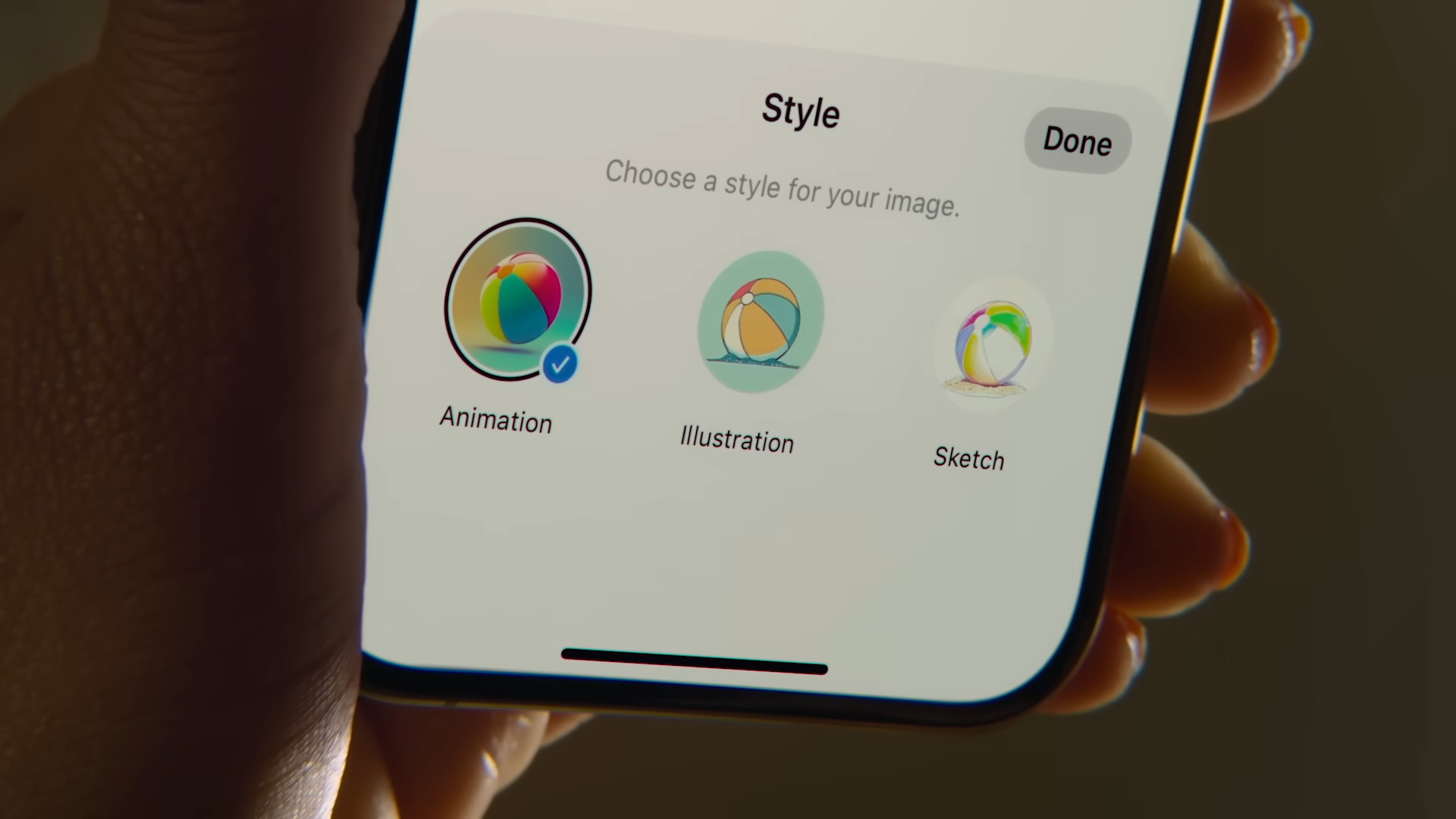Apple Intelligence keeps AI-generated images playful to avoid deepfake risks

Apple executives explain why there are no photorealistic images in the current version of Apple Intelligence: The risk of misuse is too great, they say.
"You don't want to make it easy to make deepfakes," says John Giannandrea, Apple's senior vice president of Machine Learning and AI Strategy, adding that "there's no reason to do that in the first version" of Apple Intelligence, especially since there are many other tools that can be used to create photorealistic images.
Instead, Apple is focusing on communication that is fun and expressive without creating an alternate reality, says Craig Federighi, Apple's Senior Vice President of Software Engineering.
"We want to create no confusion on these points," Federighi says. It's clear that the images generated by Apple Intelligence are not real, as Apple only allows illustrative and drawn content, such as a comic of an alligator on a surfboard.
Federighi sees AI tools as a way to enhance people's creativity and skills. They would allow individuals to express their creativity on an ever-expanding scale, just as a synthesizer makes it possible to create music that previously required an entire orchestra. For Apple, this has always been the purpose of computers: to enhance human creativity.
Apple has always done AI, but never talked about it
Greg Joswiak, Apple's chief marketing officer, doesn't see Apple Intelligence as late to the game. Apple has been using machine learning and artificial intelligence for years, even if the company hasn't always called it that.
"We've been doing it for a long time, we didn't even call it ML or AI, we called it proactive," Joswiak says.
Federighi rants about Microsoft's "AI PC," puts it in quotes, and laughs. "It's like someone discovered the idea of a neural engine this year."
Joswiak sees the fact that Apple Intelligence runs largely on users' own devices as an "incredible Apple story" in terms of privacy and power consumption.
"For us, a prerequisite to doing personal intelligence that involves data you actually care about is ironclad privacy," Federighi emphasizes.
AI News Without the Hype – Curated by Humans
As a THE DECODER subscriber, you get ad-free reading, our weekly AI newsletter, the exclusive "AI Radar" Frontier Report 6× per year, access to comments, and our complete archive.
Subscribe nowAI news without the hype
Curated by humans.
- Over 20 percent launch discount.
- Read without distractions – no Google ads.
- Access to comments and community discussions.
- Weekly AI newsletter.
- 6 times a year: “AI Radar” – deep dives on key AI topics.
- Up to 25 % off on KI Pro online events.
- Access to our full ten-year archive.
- Get the latest AI news from The Decoder.